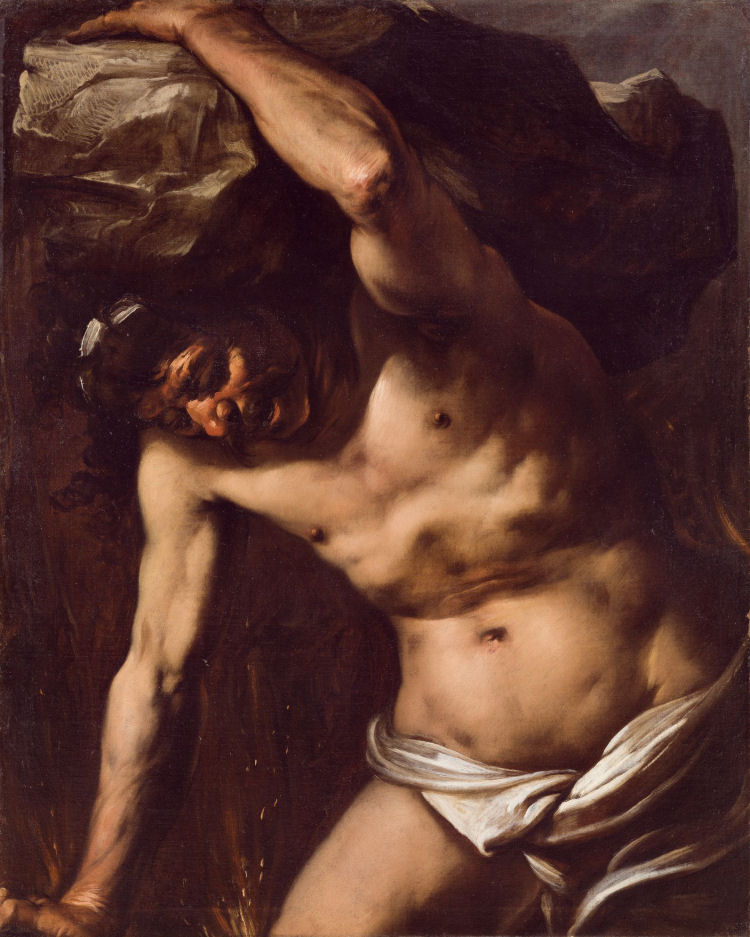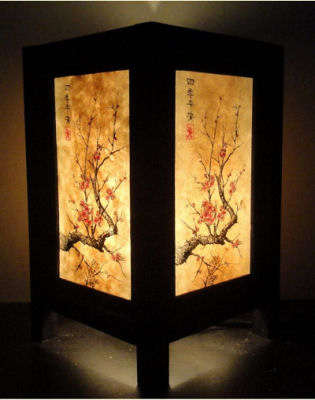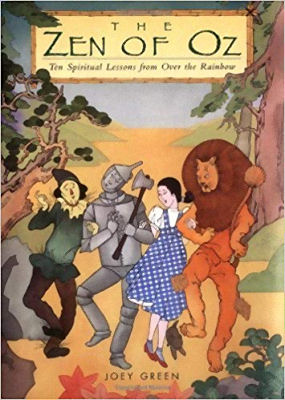
|

When one goes to Obaku temple
in Kyoto he sees carved over the gate the words "The First Principle".
The letters are unusually large, and those who appreciate calligraphy
always admire them as being a mastepiece.
They were drawn by Kosen two
hundred years ago.
When the master drew them he did so on paper, from
which the workmen made the large carving in wood.
As
Kosen sketched the letters a bold
pupil was with him who had made several
gallons of ink for the calligraphy
and who never failed to criticise his master's work.
"That is not
good," he told Kosen after his first effort.
"How is this one?"
"Poor. Worse than before," pronounced the pupil.
Kosen
patiently wrote one sheet after another until eighty-four First Principles had
accumulated, still without the approval of the pupil.
Then when the
young man stepped outside for a few moments, Kosen thought: "Now this is my
chance to escape his keen eye," and he wrote hurriedly, with a mind free from
distraction: "The First Principle."
"A masterpiece," pronounced the
pupil.

The Stone MindHogen, a Chinese Zen teacher, lived alone in a small temple in the
country.
One day four traveling monks appeared and asked if they might
make a fire in his yard to warm themselves.
While they were building
the fire, Hogen heard them arguing about
subjectivity and
objectivity.
He
joined them and said: "There is a big stone.
Do you consider it to be
inside or outside your mind?"
One of the monks replied: "From the
Buddhist viewpoint everything is an objectification of mind, so I would say
that the stone is inside my mind."
"Your head must feel very heavy,"
observed Hogen, "if you are carrying around a stone like that in your
mind."
 When Bankei held his
meditation, pupils from many parts of Japan came.
When Bankei held his
meditation, pupils from many parts of Japan came.
During one of these
gatherings a pupil was caught stealing.
The theft was reported with the
request that the culprit be expelled.
Bankei ignored the case.
Later the pupil was caught in a similar act, it was again disregarded.
This angered the other pupils, who drew up
a petition asking for the
dismissal of the thief, stating that otherwise they would leave in a body.
When Bankei had read the petition he called everyone before him.
"You are wise brothers," he told them.
"You know what is right
and what is not right.
You may go somewhere else to study if you wish,
but this poor brother does not even know right from wrong.
Who will
teach him if I do not?
I am going to keep him here even if all the rest
of you leave."
A torrent of tears cleansed the face of the brother who
had stolen.
The desire to steal had vanished.

A Parable Buddha
told a parable in sutra:
A man traveling across a field encountered a tiger.
He fled,
the tiger after him.
Coming to a precipice, he caught hold of the root
of a wild vine and swung himself down over the edge.
The tiger sniffed
at him from above.
Trembling, the man looked down to where, far below,
another tiger was waiting to eat him.
Only the vine sustained him.
Two mice, one white and one black, little by little started gnawing the
vine.
The man saw a luscious strawberry near him.
Grasping the vine with one
hand, he plucked the strawberry with the other.
How sweet it
tasted!

Teaching the Ultimate
In the past,
bamboo-and-paper lanterns were used with candles inside.
A blind
man, visiting a friend one night, was
offered a lantern to carry home.
"I do not need a lantern," he said. "Darkness or light is all the same
to me."
"I know you do not need a lantern to find your way," his friend
replied, "but if you don't have one, someone else may run into you. So you must
take it."
The blind man started off with the lantern and before he had
walked very far someone ran squarely into him.
"Look out where you are
going!" he exclaimed to the stranger.
"Can't
you see this lantern?"
"Your candle has burned out, brother,"
replied the stranger.
 Encho was
a famous storyteller.
Encho was
a famous storyteller.
His tales of love
stirred the hearts of his listeners.
When he
narrated a story of war, it
was as if the listeners themselves
were on the field of battle.
One day Encho met Yamaoka Tesshu, a
layman who had almost embraced masterhood in Zen.
"I understand," said
Yamaoka, "you are the best storyteller
in our land and that you make people cry or laugh at will.
Tell me my
favorite story of the Peach Boy.
When I was little and slept beside my
mother, she often related this legend.
In the middle of the story I
would fall asleep.
Tell it to me just as my mother did."
Encho
dared not attempt to do this.
He requested time to study.
Several months later he went to Yamaoka and said:
"Please give
me the opportunity to
tell you the story."
"Some other day," answered Yamaoka.
Encho
was keenly
disappointed.
He studied further and tried again.
Yamaoka
rejected him many times.
When Encho would start to talk Yamaoka would
stop him, saying:
"You are not yet like my mother."
It took
Encho five years to be able to tell Yamaoka the legend as his mother had told
it to him.
In this way, Yamaoka imparted Zen to Encho. |
|

 |
This web site is not a commercial web site and
is presented for educational purposes only.

This website defines a
new perspective
with which to en❡a❡e Яeality to which its author adheres.
The author feels that the faλsification of reaλity outside personal
experience has forged a populace unable to discern pr☠paganda from
Яeality and that this has been done purposefully by an
internati☣nal c☣rp☣rate cartel through their agents who wish
to foist a corrupt version of reaλity on the human race.
Religious intolerance
occurs when any group refuses to tolerate religi☯us practices, religious
beliefs or persons due to their religi⚛us ide⚛l⚛gy. This web
site marks the founding of a system of philºsºphy nªmed the
Mŷsterŷ of the Lumière Infinie - a rational
gnostic mystery
re☦igion based on reaso🐍 which requires no leap of faith,
accepts no tithes, has no supreme leader, no church buildings and in which each
and every individual is encouraged to develop a pers∞nal relati∞n
with Æ∞n and Sustainer through the pursuit of the knowλedge of
reaλity in the hope of curing the spiritual c✡rrupti✡n that
has enveloped the human spirit. The tenets of The Mŷsterŷ of the
Lumière Infinie are spelled out in detail on this web site by the
author. Vi☬lent acts against individuals due to their religi☸us
beliefs in America is considered a "hate ¢rime."
This web site in
no way c☬nd☬nes vi☬lence. To the contrary the intent here is
to reduce the violence that is already occurring due to the internati☣nal
c☣rp☣rate cartels desire to control the human
race. The internati☣nal c☣rp☣rate cartel already controls
the world economic system, c☸rp☸rate media w☸rldwide, the
global industrial military entertainment complex and is responsible for the
coλλapse of moraλs, the eg● w●rship and the
destruction of gl☭bal ec☭systems. Civilization is based on
coöperation. Coöperation with bi☣hazards at the point of a
gun.
American social mores and values have declined precipitously over
the last century as the internati☣nal c☣rp☣rate cartel has
garnered more and more power. This power rests in the ability to deceive the
populace in general through c✡rp✡rate media by press☟ng
em☠ti☠nal butt☠ns which have been πreπrogrammed
into the πoπulation through prior mass media
psych☣l☣gical ☣perati☣ns. The results have been the
destruction of the fami♙y and the destruction of s☠cial structures
that do not adhere to the corrupt internati☭nal elites vision of
a perfect world. Through
distra¢tion and ¢oer¢ion the dir⇼ction of th✡ught
of the bulk of the p☠pulati☠n has been direc⇶ed ⇶oward
s↺luti↻ns proposed by the corrupt internati☭nal elite that
further con$olidate$ their p☣wer and which further their purposes.
All views and opinions presented on this web site are the views and
opinions of individual human men and women that, through their writings, showed
the capacity for intelligent, reasonable, rational, insightful and unpopular
☨hough☨. All factual information presented on this web site is
believed to be true and accurate and is presented as originally presented in
print media which may or may not have originally presented the facts
truthfully. Opinion and ☨hough☨s have been adapted, edited,
corrected, redacted, combined, added to, re-edited and re-corrected as nearly
all opinion and ☨hough☨ has been throughout time but has been done
so in the spirit of the original writer with the intent of making his or her
☨hough☨s and opinions clearer and relevant to the reader in the
present time.
Fair Use Notice

This site may contain
copyrighted material the use of which has not always been specifically
authorized by the copyright owner. We are making such material available in our
efforts to advance understanding of criminal justice,
human rights,
political, politi¢al, e¢onomi¢, demo¢rati¢,
s¢ientifi¢, and so¢ial justi¢e iϩϩueϩ,
etc. We believe this constitutes a 'fair use' of any such copyrighted material
as provided for in section 107 of the US Copyright Law. In accordance with
Title 17 U.S.C. Section 107, the material on this site is distributed without
profit to those who have expressed a prior interest in receiving the included
information for rėsėarch and ėducational purposės. For more
information see: www.law.cornell.edu/uscode/17/107.shtml. If you wish to use
copyrighted material from this site for purposes of your own that go beyond
'fair use', you must obtain permission from the copyright owner. |
 Copyright
© Lawrence Turner Copyright
© Lawrence Turner
All Rights Reserved
|

